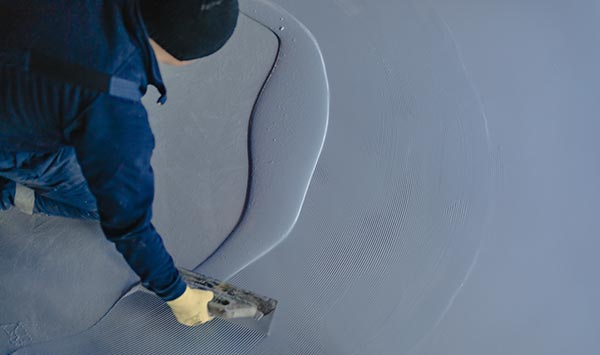Polyurethanes and Epoxies
Epoxy resins

Epoxy resins are generally made through the reaction of phenols with acetone or formaldehyde. Those reactants are then further reacted with epichlorohydrin. The resultant materials are diglycidyl ethers of what are called Bisphenol A epoxies, Bisphenol F epoxies, or phenolic novolac epoxies.
Bisphenol A Epoxies
Bisphenol A resins are available in a large range of molecular weights. Moreover generally have quite high in viscosity and this has historically limited its use in high filler loaded coatings.
Bisphenol F Epoxies
These resins have lower viscosity than Bisphenol A resins and provide much better strong acid and strong solvent chemical resistance.
These resins are then crosslinked via polymerization reactions with various curing agents or blends of curing agents.
Novolac epoxies
Novolac epoxies have a higher molecular weight than Bisphenol A or F resins. Novolac epoxy resins have two distinct performance advantages over Bisphenol F resins.
| PROPERTIES | PROPERTIES | ||
|---|---|---|---|
| BISPHENOL A | BISPHENOL A | BISPHENOL A | |
| Abrasion Resistance | *** | *** | * |
| UV Light Resistance | * | * | * |
| Adhesion | *** | *** | *** |
| VOC | ** | *** | *** |
| Resistance to Moisture | *** | *** | *** |
| Chemical Resistance | * | ** | * |
Curing Agents for Epoxies
- Aliphatic Polyamines.
- Polyamine Adducts.
- Polyamide/Amidoamines.
- Aromatic Amines.
- Ketimines.
- Cycloaliphatic Amines.
| PROPERTIES | ||||||||
|---|---|---|---|---|---|---|---|---|
| CURING AGENT | Viscosity | Cure Time | Low Temp Cure | Color Stability | Water Sensitivity | Film Flexibility | Heat Resistance | Acid Resistance |
| Aliphatic Amines | ** | ***** | ***+ | **** | *** | * | *** | *** |
| Polyamine Adducts | **** | *** | *** | ***+ | *** | * | *** | *** |
| Polyamides/Amiodamines | **** | ** | * | *** | *** | **** | * | * |
| Aromatic Amines | **** | ** | * | * | **** | *** | **** | **** |
| Cycloaliphatic Amines | ** | ** | *** | **** | **** | * | **** | **** |
| Ketimines | *** | ** | * | *** | **** | **** | *** | *** |
Modified Epoxy Types
| Properties | Aliphatic Amine Cure | Polyamide Cure | Phenolic Modified | Aromatic Amine Cure | Silicone Modified | Coal Tar Amine Cure | Coal Tar Polyamide Cure | Water Based |
|---|---|---|---|---|---|---|---|---|
| Hardness/Strength | Hard | Tough | Hard | Hard | Medium-Hard | Hard (Brittle) | Tough | Tough |
| Water Resistance | Good | Very Good | Excellent | Very Good | Good-Excellent | Excellent | Excellent | Fair-Good |
| Acid Resistance | Good | Fair | Excellent | Very Good | Good | Good | Good | Fair |
| Alkali Resistance | Good | Very Good | Excellent | Very Good | Good | Good | Very Good | Fair |
| Salt Resistance | Very Good | Very Good | Excellent | Very Good | Very Good | Very Good | Very Good | Fair-Good |
Calculating the quantity of curing agent required to cure 100g of epoxy resin (PHR)
Amine Hydrogen Equivalent Weight (AHEW)
Epoxy Equivalent Weight (EEW)




GET IN TOUCH
Send Us a Message and Learn More About Our Services and Products
Our representative will contact you as soon as possible.

